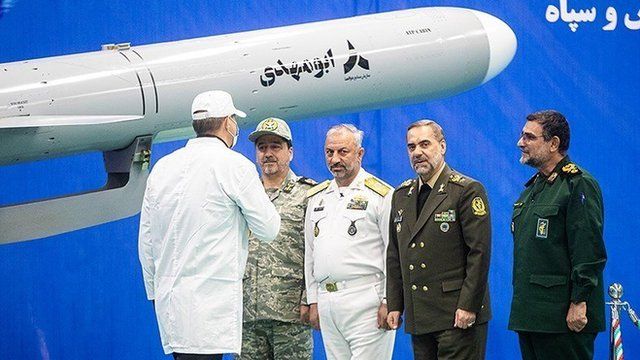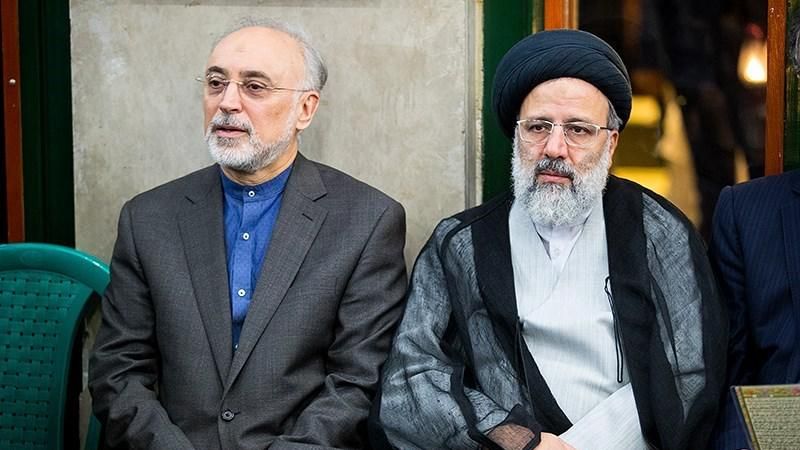
A Way to Decrease Public Turnout
The editorial of Etemad states that with the return of the so-called morality police to the streets of Iran, people will avoid going to the ballot box in the upcoming parliamentary election.
The morality police have returned to the streets of Iran under a different name. Even though government officials have announced having no role in this, the role of the Interior Ministry, the government and the Parliament cannot be ignored in such decisions.
First, it must be underscored that there is no article or principle in the Iranian Constitution about women who are considered to be wearing “bad hijab”— which refers to those who do not comply with Islamic dress codes. So, if the Iranian government intends to have a strategy in this regard, it must first ratify the necessary law for it. How come no such law has been ratified in this regard yet? That is because the government is fully aware that any step in this field will ramp up popular dissatisfaction.
In general, the law is a contract between the government and the people to create social justice. After the popular protests over forced hijab, the hijab has become a particularly emotive subject. The protests were basically triggered by the death of Mahsa Amini – a young girl who was killed in the custody of the morality police last year.
After this incident, people took to the streets to protest against the morality police and the government’s policy, and the Iranian authorities responded by saying that the idea of the morality police has no place in the country’s legal framework. At that time, no entity, organization or group accepted responsibility for the morality police.
With the subsiding of the crisis that was created back then, once again organizations like the morality police have become operational to enforce women’s dress codes in the name of complying with the country’s hijab laws. Naturally, this time, too, the desirable outcomes will not be reached. A government must essentially make its ideas operational through gaining public consensus.
How come in Malaysia, Jordan, India, etc. where there is no such thing as the morality police people still wear the hijab? How come the hijab is institutionalized in these countries but not in Iran? The government must pursue social and cultural projects to increase public satisfaction. That the government and the Parliament deny having any role in the resumption of the morality police’s activities reveals that even officials are aware that such plans are not effective.
The parliamentary election is right around the corner and officials must lay the ground for increasing public participation. Such moves will only make people turn away from the ballot box and decrease their turnout.
Mr. Ambassador Eats Kebob!
The editorial of Arman Melli addresses the issue of the British ambassador to Tehran making Iranian kebob, which infuriated Iranian “hardliner conservatives” who are running the government, telling them that instead of getting angry over such issues, they must focus on fixing Iran’s foreign policy and diplomacy.
On World Kebob Day, the British ambassador to Iran released a video on Instagram in which he is making kebob and saying in Persian that “Iranians are used to making chicken kebob and prepare other things and go to the north of the country. Why not? They are having fun.”
This video angered Iranian “hardliner conservatives” and led to scathing criticism against the ambassador.
But what is wrong with the ambassador speaking in Persian, making kebob and talking about what Iranian people like and love to do? Iran too must train such ambassadors.
There is considerable negligence in Iran’s diplomacy. Over the past few months, China and Russia have taken a stance over a very sensitive and historical issue, while these two big powers are facing the most challenging times in the past 30 years: one is dying in Ukraine and the other is struggling hard against NATO in the South China Sea and close to Taiwan.
Surprisingly, the Iranian government has been generously helping China and Russia. So, how come these global powers are openly challenging Iran over its territorial integrity? China and Russia will not let go of 22 countries in the Arab Union and six very rich nations in the Gulf region for the sake of Iran.
Their governments are made up of competent, experienced managers who have a national strategy based on which they make their decisions. They have learned to make their bets on the winning horses.
Russia and China are well aware that Iran’s maximum reaction to this issue will be a statement by the Iranian Foreign Ministry spokesperson and nothing more. These two countries know that the Iranian government has no other ally to turn to and will eventually have to go to them.
A famous German strategist said: any nation’s honor and authority depend on its allies and friends. But who is Iran’s ally? Who is its friend?
Necessity of Having Balanced Relations
The editorial of Arman Melli, penned by Iran’s former ambassador to Lebanon, urges that Iran must have balanced relations not just with regional countries but also with big countries as well.
Regional countries, particularly Oman which has always been after peace in the Gulf region, are now after improving Iran-US relations so that there are no tensions leading to a conflict. So, it is only natural for these countries to really do their best to improve and facilitate Iran-US relations. Iran’s relations with Oman and Qatar have been more friendly than others which is why these countries have always been chosen for mediation between Iran and the West.
Any country’s foreign policy is desirable when it is pragmatic, which means using its capacities, both on the regional and international stages, to improve its own security and economic conditions, particularly when the country is under the pressure of sanctions.
So, pragmatism in politics requires that Iran should improve its relations with both regional countries and big countries in the world. Currently, Iran’s relations with the West have come to a halt. Having unbalanced relations with other countries does not favor Iran at all, particularly now that Iran only has good relations with China and Russia.
Recently, former Iranian diplomats signed a statement urging the government to establish balanced relations with the world. If Iran has good relations with Russia and China without having any good relations with the West, then the so-called Eastern bloc will dictate its policies on Iran. So it is wrong to merely have good relations with China and Russia.
Iran must be after creating balanced foreign relations with both the East and the West. This is an important principle to adopt to secure national interests and to establish amicable relations with all countries and global powers.
Sustainability of Decrease in Inflation
The editorial of Eghtesad Pooya states that lack of economic growth in Iran has resulted in an increase in liquidity which in turn has led to soaring inflation.
Currently, many businesses and individuals are trying to find out if the decline in inflation is going to continue. Everyone wishes to see the inflation rate in Iran drop to a single digit. But the question is: is it possible?
We must first see what the cause of inflation is. The main cause of inflation is liquidity in the economy. In Iran’s economy, we are facing the issue of increasing liquidity.
In Iran, liquidity is created every day, reaching 30% per year. It means that that every month liquidity grows 2.5%. After 2018, liquidity growth reached 3% per month. Even a 0.5% increase in liquidity makes a huge difference per year, pushing liquidity growth from 30% to 36% annually. At some juncture, the liquidity growth reached almost 40% which is a huge number for Iran’s economy.
Of course, inflation cannot just be blamed on liquidity. Those who talk about the budget deficit in Iran’s economy alleging that all problems are caused by the budget deficit are ignoring – willingly or unwillingly – other factors.
The problem of Iran’s economy is the lack of economic growth. Iran’s Statistical Center announced that in the past 10 years economic growth has been zero which signals the ineffectiveness of all plans. One can take a look at the economic growth of Saudi Arabia, the UAE, Qatar, Kuwait, Turkey, Bangladesh, Sri Lanka, etc.
The reason why our liquidity has reached this number is the lack of economic growth. Iran’s economy has remained fixed while the national currency has lost its value against the dollar. In the meantime, the volume of liquidity has been constantly on the rise.

Dozens of Cruise Missiles Delivered to Navy Fleet

Iran’s Minister of Defense, in a ceremony in the presence of senior commanders of the IRGC and the naval forces, announced the delivery of dozens of Abu Mahdi cruise missiles to the naval forces. The IRGC naval commander stated in this ceremony that Abu Mahdi missiles are among those sanctioned by the United States.
Defense Minister Mohammad Reza Ashtiani declared that this missile with a 1,000 kilometer range will exponentially increase Iran’s naval defense range. He added that this missile can evade “enemy radar” by flying at low altitudes.
Iran unveiled the Abu Mahdi Muhandis missile in 2020 for the first time.
Abu Mahdi al-Muhandis was one of the commanders of Hashd al Sha’abi who, along with IRGC Quds Force Commander Qassem Soleimani, was targeted and killed in a US military attack while leaving Baghdad International Airport.
Currently, Iran has an unspecified number of ballistic missiles. Although the exact number has not been officially declared, different sources all agree that Iran’s missile arsenal is the largest in the Middle East.
The Iranian government’s missile program has been repeatedly criticized by the United States and European countries, including France and Germany.
Activists Protest Against the Return of the Morality Police to the Streets

A number of political, civil and women activists inside and outside Iran have issued a statement regarding the return of the so-called morality police to the streets of Iran, calling it the Iranian government’s “desperate measure” in countering women and the “Woman, Life, Freedom revolution.”
The statement underscores that bringing the so-called morality police back to the streets, along with increasing public crackdowns and arrests, will only increase people’s anger and will add fuel to the “flames of the revolution” which will overwhelm the government sooner and more severely.
The Iranian government has once again unleashed morality police patrols in the streets of Iran; these patrols were inactive amid the popular protests over the death of Mahsa Amini in morality police custody.
The morality police are back on the streets after the death of Mahsa Amini which sparked nationwide protests last year.
With law enforcement vehicles stationed across the streets of Tehran and other cities, the chief commander of the law enforcement forces warned that women and girls have to comply with the Iranian government’s dress codes when appearing in public spheres including on public transportation.
Chief Justice Mohsseni Ejei, objected to the “use” of psychology in the sentences issued by courts against female artists who are against forced hijab.
In recent days, sentences were handed to three actresses for not complying with forced hijab, ordering them to go to mental health centers for receiving treatment for the “mental illness of having anti-family values.”
The letter reads: abusing psychology and psychiatry has a long and sad history, adding that the opponents of communism, for example, were imprisoned in mental hospitals during Soviet Russia as a form of punishment.
With issuing sentences like ordering women to go to psychologists, working as cleaners and washing corpses in burial centers, the Iranian judiciary seeks to prevent women from appearing in public places without the hijab.
Importing 2,000 Buses for Arbaeen Ceremony Despite Dwindling Intercity Bus Fleet in Iran

Iran is getting ready for holding the Arbaeen ceremony in Iraq. To do so, despite the severe shortage in intercity bus services in Iran, the Ministry of Roads and Urban Development announced the import of 2,000 buses for taking pilgrims to participate in the Arbaeen ceremony in Iraq this year.
The Arbaeen ceremony is annually held in Iraq at the end of the 40-day mourning period following Ashura, the religious ritual for the commemoration of the martyrdom of Shiite Imam Hussein. Iran has turned this annual religious ceremony into a political show of Shiite muscle flexing in the region.
In the meantime, Head of the Union of Cooperative Passenger Companies Ahmad Reza Ameri underscored that there are only 6,500 buses active in intercity bus services in Iran. He told ISNA news agency that two years ago about 15,500 buses were annually moving passengers between cities, which has now dropped to 6,500 buses, showing a 60% decrease.
Ameri pointed out that during the coronavirus pandemic in Iran, intercity bus services were more than now, adding that apart from trips to pilgrimage cities, passengers are facing a paucity of buses for travelling to other parts of Iran.
It was recently reported that buses have been sent to Pakistan for transporting Shiite pilgrims from this country to Iran for the Arbaeen ceremony.
Shortages in intercity modes of transportation are not limited to buses, and in recent days there have been reports in media outlets and social networks regarding the paucity of airplane tickets for destinations like the city of Mashhad while the cost of flight tickets has skyrocketed.
Former Foreign Minister Calls for Comprehensive Negotiations With the United States

Ali Akbar Salehi, former foreign minister and former head of Iran’s Atomic Energy Organization, stated that Iran must start political talks to regulate its relations with the United States, adding that China and Russia too had made the same recommendation to Iran.
Salehi, who is currently the deputy head at the Academy of Sciences of Iran, told Entekhab that it is time for Iran to start comprehensive political talks with Europe and the United States.
He added that during previous challenges “we have talked with America over certain issues; for instance, about Afghanistan or Iraq or about releasing prisoners or the JCPOA or the nuclear issue. But we have never had extensive political negotiations which would include all dimensions. But now given all regional and international circumstances, there is a good opportunity for having comprehensive political negotiations with the West, including Europe and America.”
Salehi, who has a history of harshly disagreeing with US policies, pointed to the complications which exist in Iran-US relations, criticizing Iran for squandering some of the opportunities in this regard in the past.
The former foreign minister’s remarks were published a few days after the US strategic talks with the Arab Union which ended without mentioning Iran. But two weeks ago, Russia, in a joint official statement with the member countries of the GCC, took a stance against Iran. Earlier, China too had adopted the same position.
Russia’s recent position against Iran provoked widespread criticism inside and outside the country against the Iranian government’s cooperation with China and Russia.
Iran’s foreign policy under Ali Khamenei has shifted toward the East, and Tehran has been after getting closer to Moscow and Beijing. There are signs, however, that show that there is no balance and equality in Iran’s relations with these two countries.
Salehi went on to say that “the Chinese are telling us – at least during the time I was in charge – to regulate our relations with America so that our problems are resolved. The Russians told us the same thing.”
Iran and Malaysia Sign MOU for Agriculture

A Memorandum of Understanding (MOU) was signed between Iran and Malaysia for joint cooperation in developing and deepening bilateral relations in different agricultural fields.
In a meeting between Seyed Mojtaba Khayam Nekooi, deputy to the agricultural minister, and the Malaysian agricultural minister, ways to develop and deepen bilateral relations in the field of agriculture and transferring technology were discussed and agreed upon, and an MOU was signed accordingly.
The MOU included creating joint research stations for tropical fruits, providing research opportunities in watershed management, fishing, gardening, irrigation, preserving plants as well as holding short-term courses and joint training workshops.
Nekooi stated on the sidelines of the meeting that Malaysia needs many kinds of fruits like apples, kiwis, oranges and tangerines, and Iran has the capacity for exporting these items to this country.
Adding that this MOU will considerably increase Iran’s trade balance, he highlighted that Malaysia has good experience in the issue of Islamic “halal” products and will closely cooperate with Iran in this regard.
Malaysian Agricultural Minister Mohamad Sabu also stated that his country must use Iran’s experience and technology in different fields particularly waterless rice planting, breeding poultry and caviar.
He added that in the framework of this MOU, the range of trade in agricultural products will expand.
In the meantime, the China Customs Office announced that Iran’s exports to this country nearly halved in the first half of 2023 compared to the same period last year.
According to this report, Iran’s exports to China in the first half of this year reached $2.2 billion showing a 46% drop compared to the same period last year.
Since the beginning of 2020 and with the US heightening restrictions on those violating the sanctions on Iran, China has purchased Iran’s oil through brokers, particularly Malaysian dealers, and with considerable discounts. These purchases are not reflected in the China Customs Office reports.
